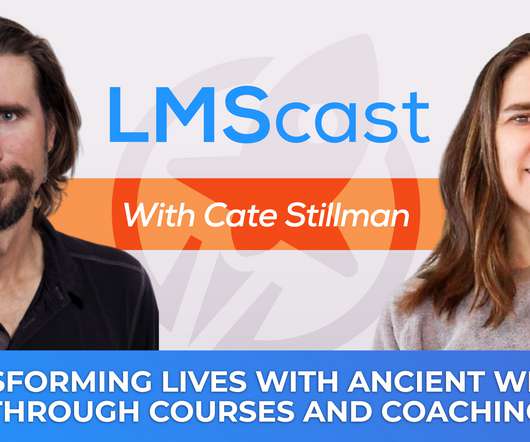CSU Resources
Kapp Notes
SEPTEMBER 28, 2017
It’s effective from a learning perspective and really engages students. Cognition and Instruction , 5(4), 289-309. Cognitive and affective process analyses (pp. 1996) Intrinsic motivation and the process of learning: Beneficial effects of contextualization, personalization and choice. Applied Cognitive Psychology.

























Let's personalize your content